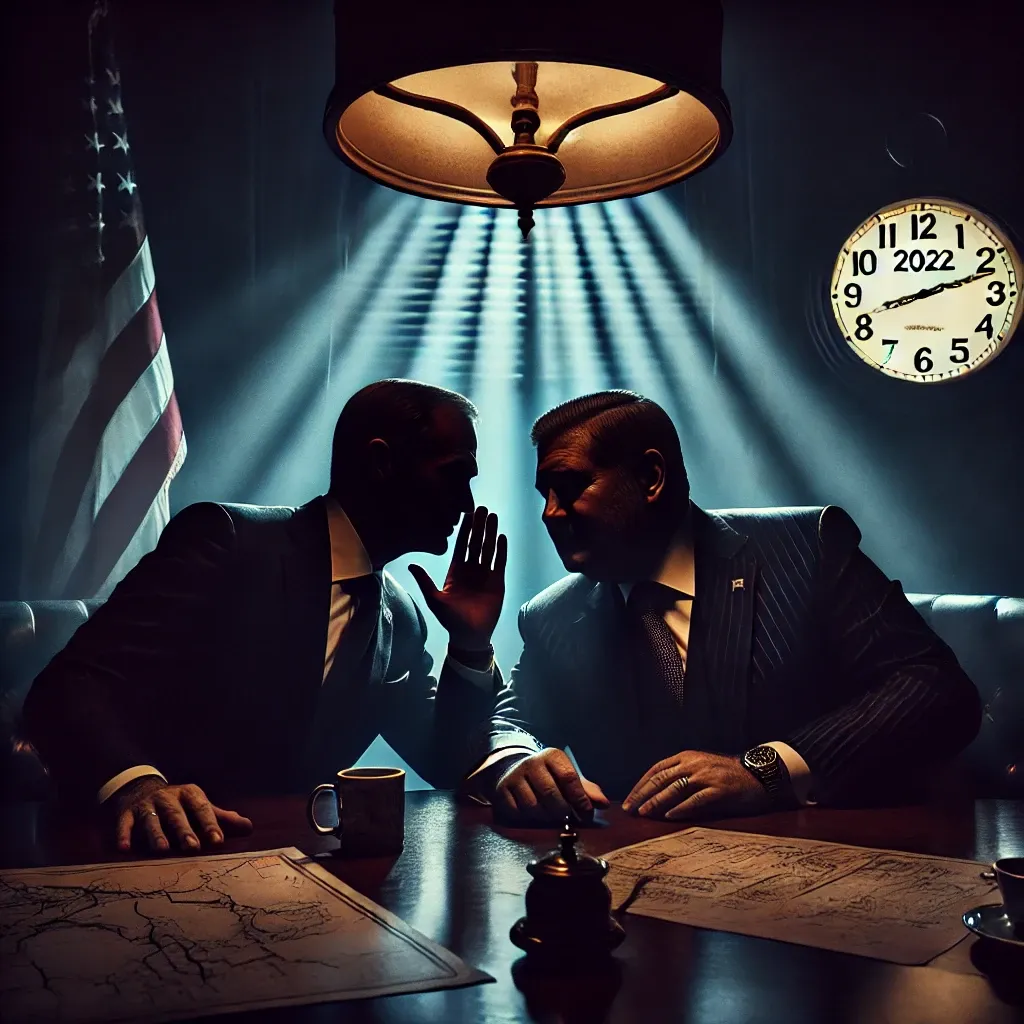In the shadowy world of high-level diplomacy, where whispers are more potent than speeches and handshakes hide hidden agendas, an astonishing theory has emerged: a secret 2012 deal between the U.S. and Russian presidents that set the stage for Russia's invasion of Ukraine 10 years later. Desperate for re-election, the U.S. president allegedly struck an agreement to buy time for Moscow's ambitions—trading future global chaos for immediate political gain.
It was the spring of 2012, and the U.S. president, facing a tight re-election race, found himself in a delicate balancing act with Russia. During a nuclear security summit in Seoul, South Korea, a now-famous hot-mic incident captured the president telling his Russian counterpart: "After my election, I'll have more flexibility." To most observers, the comment was a standard political aside relating to arms control negotiations, but it was code—a signal that something far more significant was in the works.
The U.S. president wasn't just referring to missile defense systems. The "flexibility" he mentioned was supposedly a promise: if the Russian president could hold off on any aggressive moves, including meddling in U.S. politics or advancing territorial claims, the U.S. leader would, in return, ensure a more lenient stance toward Russia's long-term ambitions. The ultimate prize? A free hand in Ukraine, but only in 2022—after the U.S. president had safely exited office and any political fallout could be avoided.
In this version of events, the Russian president, ever the shrewd tactician, agreed. After all, what's a 10-year wait in the grand scheme of geopolitical chess? The alleged deal would allow the Russian leader to plan meticulously for Ukraine while giving the U.S. president the space needed to secure a second term with minimal interference from Moscow.
From 2012 to 2022, the world continued, largely unaware of the ticking clock this supposed backroom agreement set in motion. Russia's annexation of Crimea in 2014 raised eyebrows, but many dismissed it as an isolated event—though, in hindsight, some now view it as a prelude, a "test run" for the more considerable invasion to come.
Both leaders maintained a delicate balance of non-escalation throughout this decade, waiting for the clock to run out. The Russian president, knowing full well that the U.S. president had fulfilled his end of the bargain, would have the flexibility to launch his invasion of Ukraine at precisely the agreed-upon time: 2022.
While no leaked emails, signed documents, or official records support the theory, conspiracy enthusiasts claim this was part of the genius. The deal, they say, was too important to put on paper. Instead, it was conveyed through "diplomatic Morse code"—a series of knowing winks, cryptic messages, and off-the-record conversations.
One retired diplomat, speaking anonymously, explained, "In diplomacy, what's not said is often more important than what is. Deals like this? You'll never find a smoking gun. The real negotiations happen behind closed doors—sometimes without even words exchanged."
And so, as 2022 arrived, the theory reached its inevitable conclusion. Russian tanks rolled into Ukraine, setting off the most significant conflict in Europe since World War II. The U.S., now under new leadership, responded with condemnation and sanctions. Still, to many, it seemed reactive and disorganized—a far cry from the robust stance expected from the world's foremost superpower.
It was all part of the plan. The tepid U.S. response was precisely what the Russian president had banked on. The deal, allegedly struck in 2012, had played out perfectly. The Russian leader waited ten years while the former U.S. president enjoyed his retirement, comfortably detached from the political fallout of a war his administration had supposedly laid the groundwork for.
Both former U.S. and Russian officials have repeatedly denied any such deal existed, dismissing the theory as "wildly speculative" and "divorced from reality." A retired U.S. national security adviser asked about the allegations, responded bluntly: "This is absurd. There was no secret deal for a future invasion. The hot-mic moment was about arms control, period."
Similarly, a Kremlin spokesperson labeled the theory as "ridiculous," stating, "Russia's actions in Ukraine are based on national security concerns, not some mythical agreement from a decade ago."
However, such denials are simply more proof of the covert nature of the deal. "Of course they're denying it," said one online commenter. "That's what they want you to believe. The best conspiracies are the ones that stay hidden, even when they're happening right in front of you."
This article is a satirical take on current events. The content is fictional and is meant for entertainment purposes, reflecting speculation without substantiated evidence.



